Giro d'Italia team by team review: Part 1
Cyclingnews writers cast their verdict on each team's performance
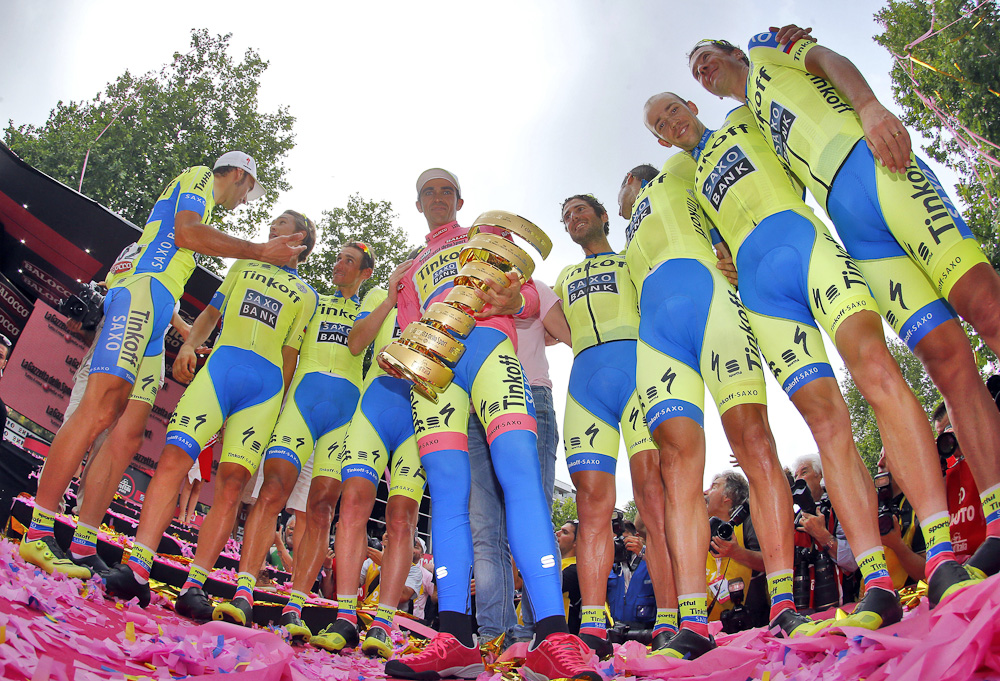
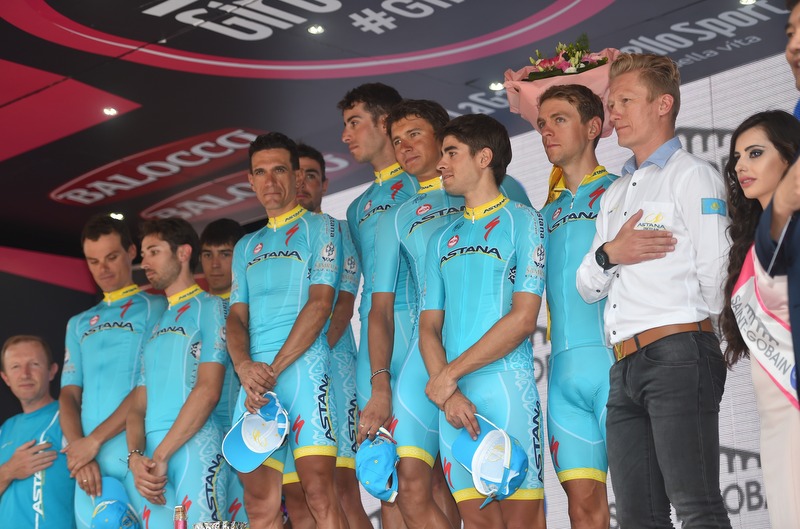
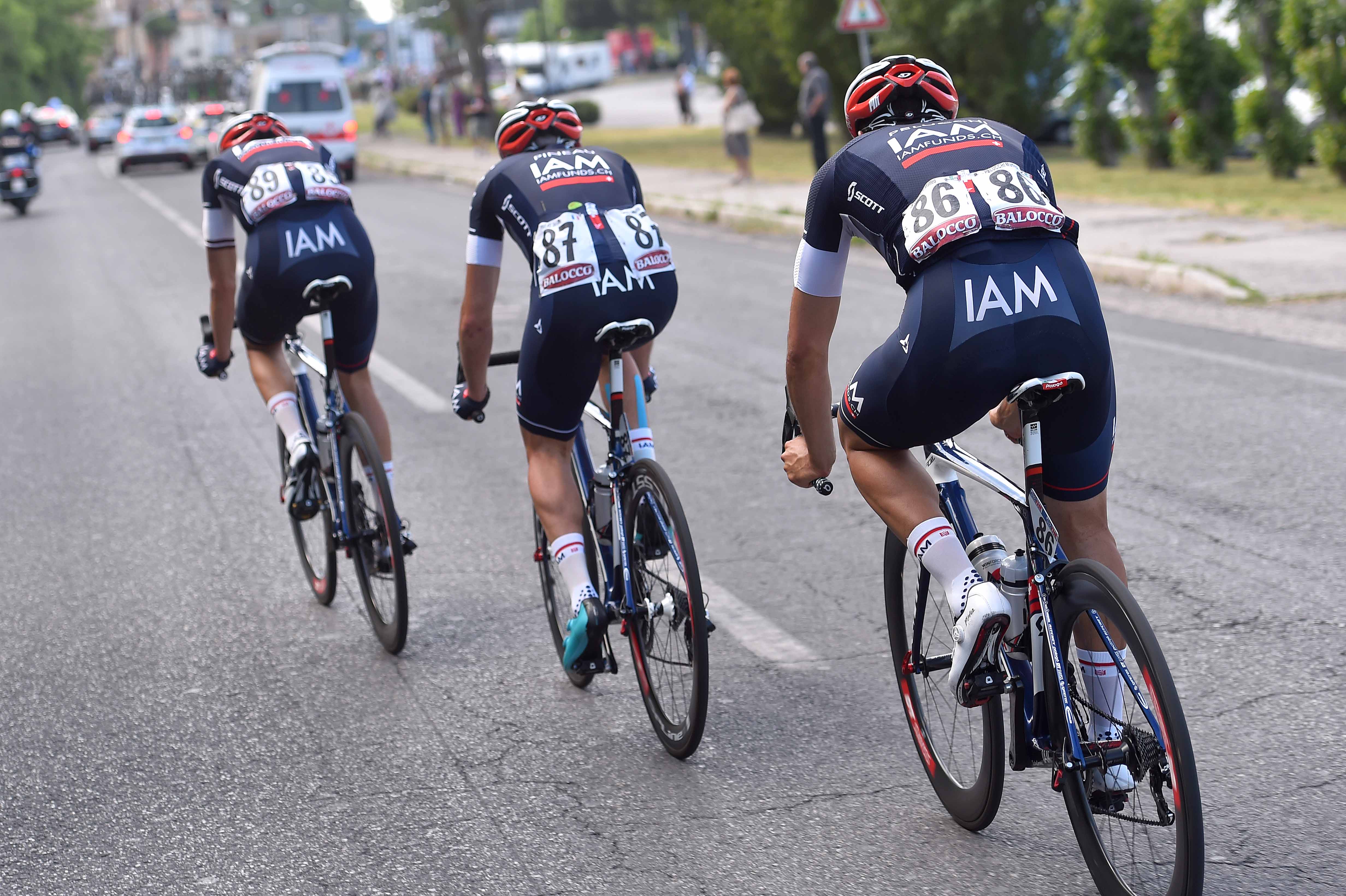
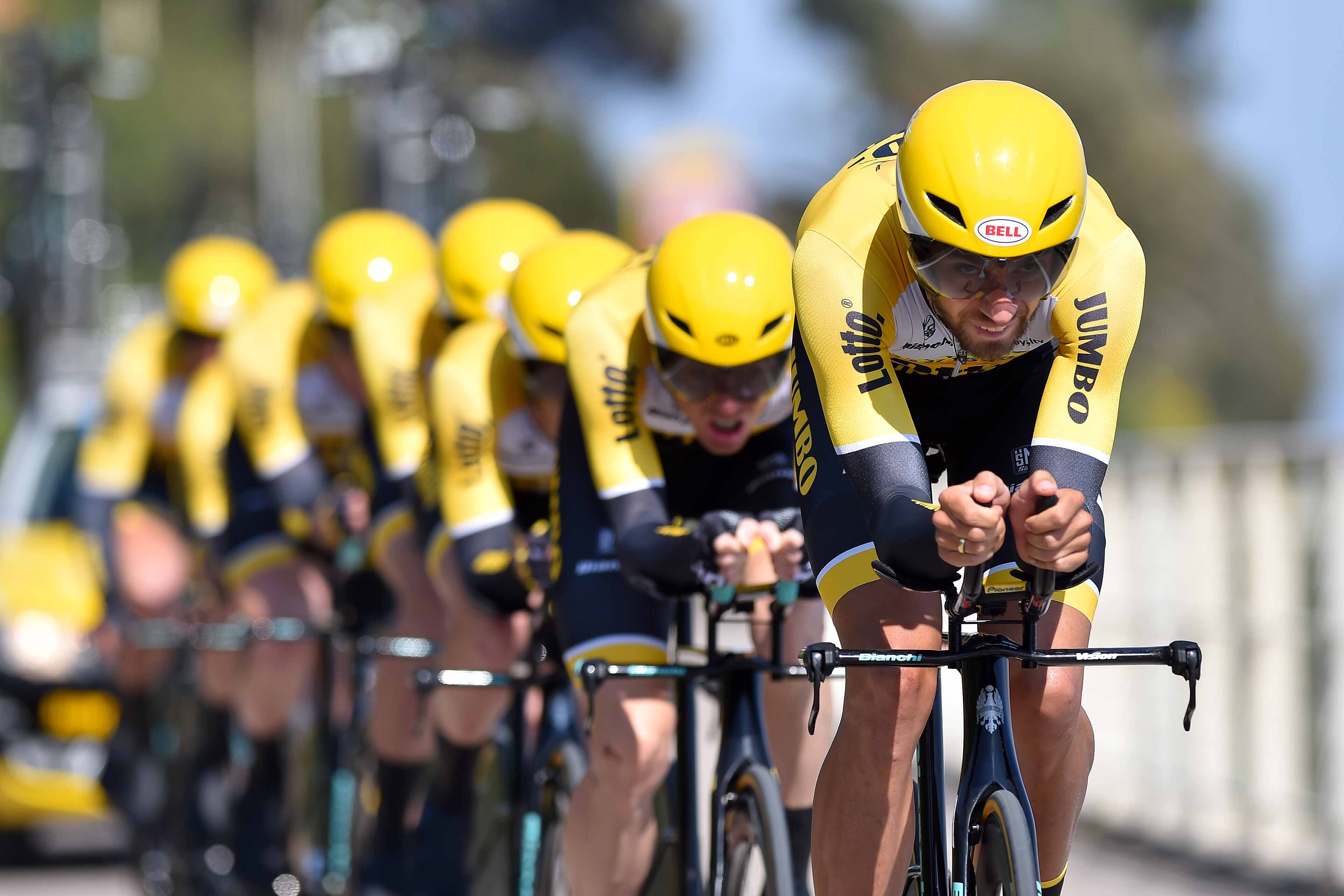
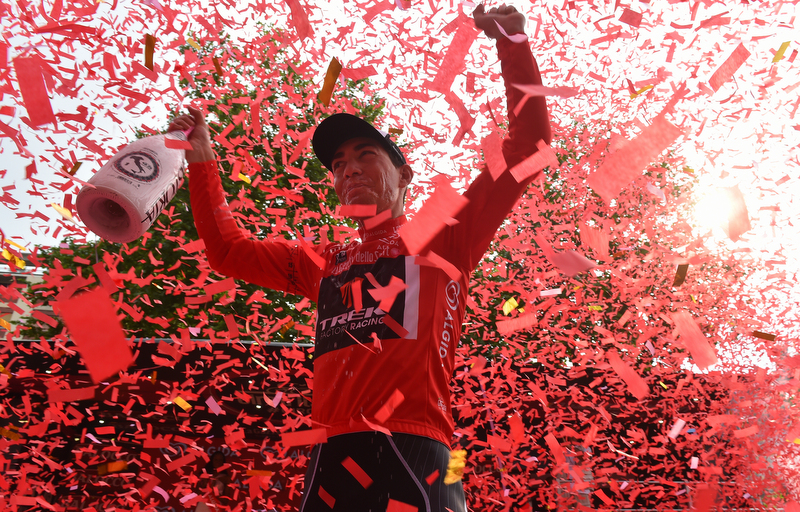
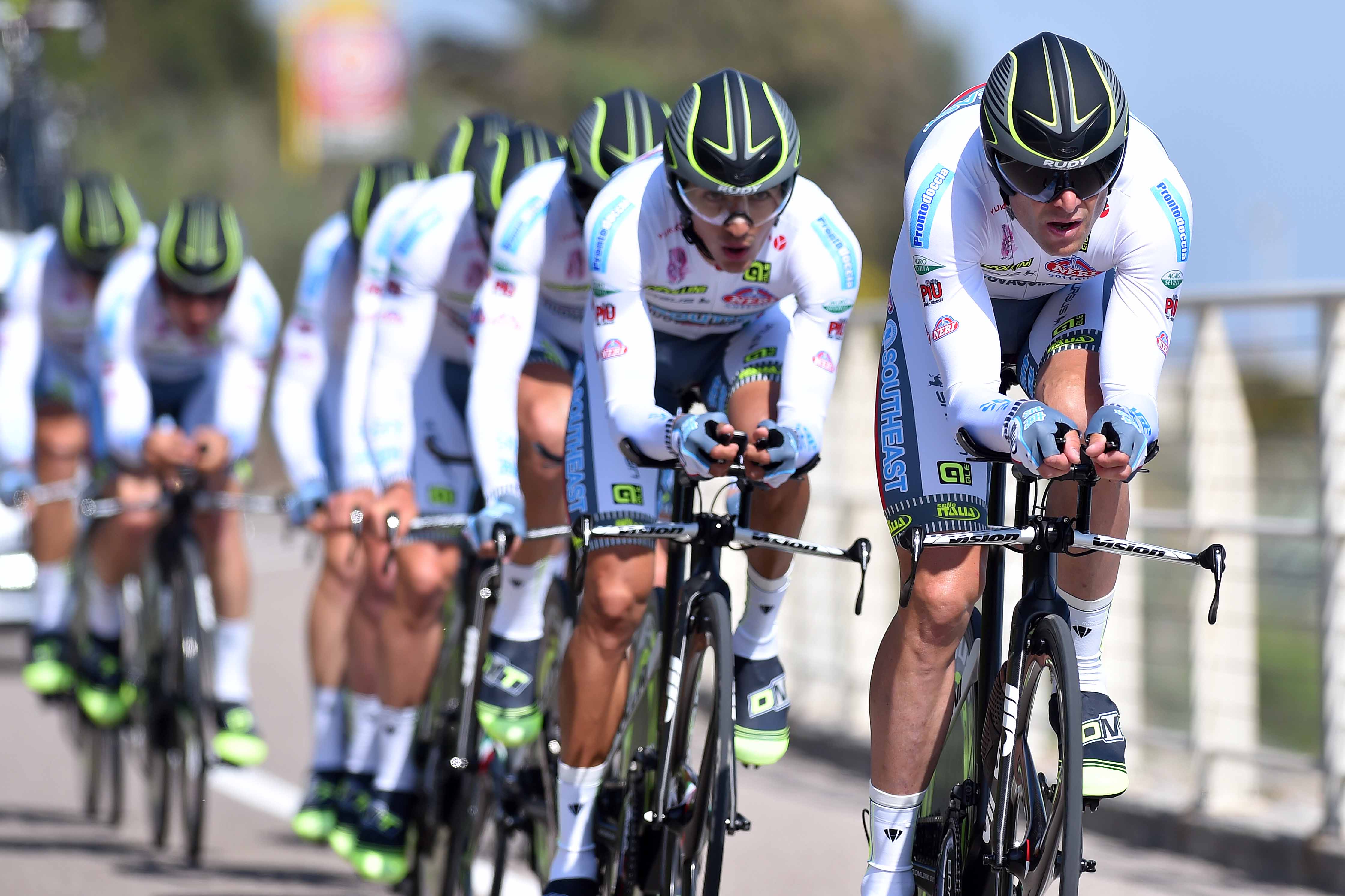
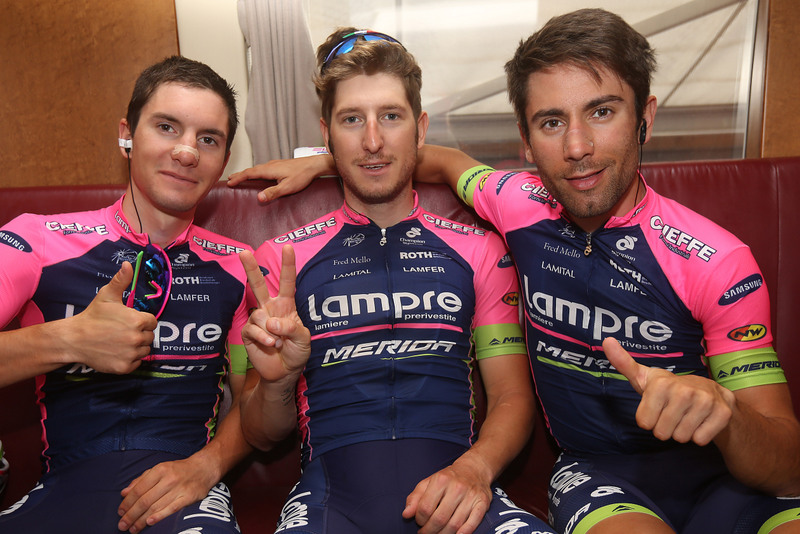
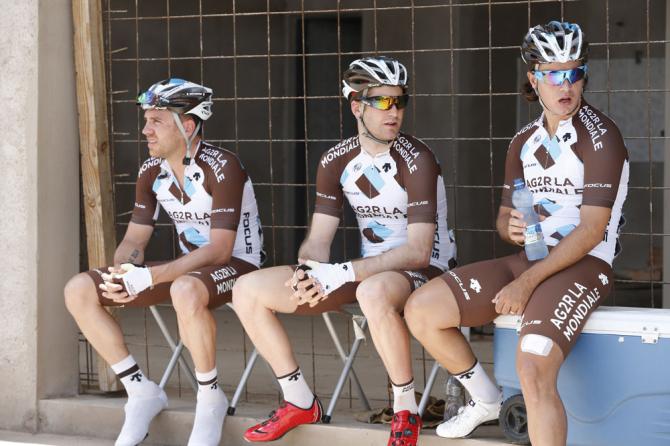
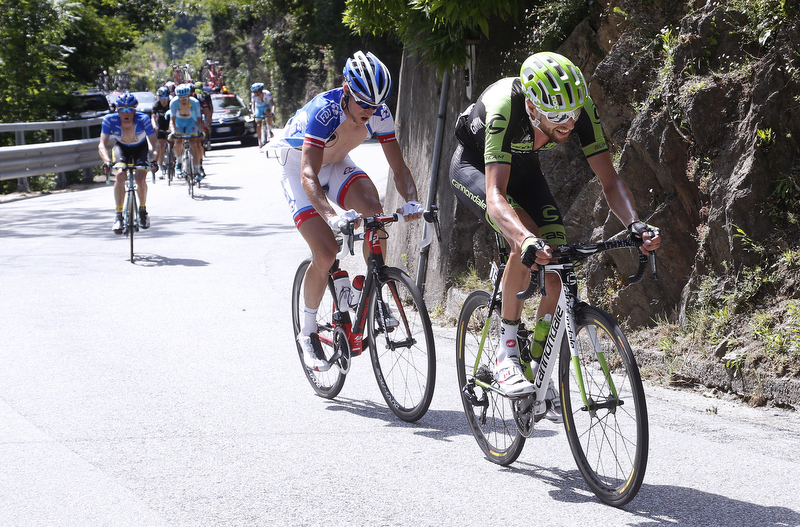
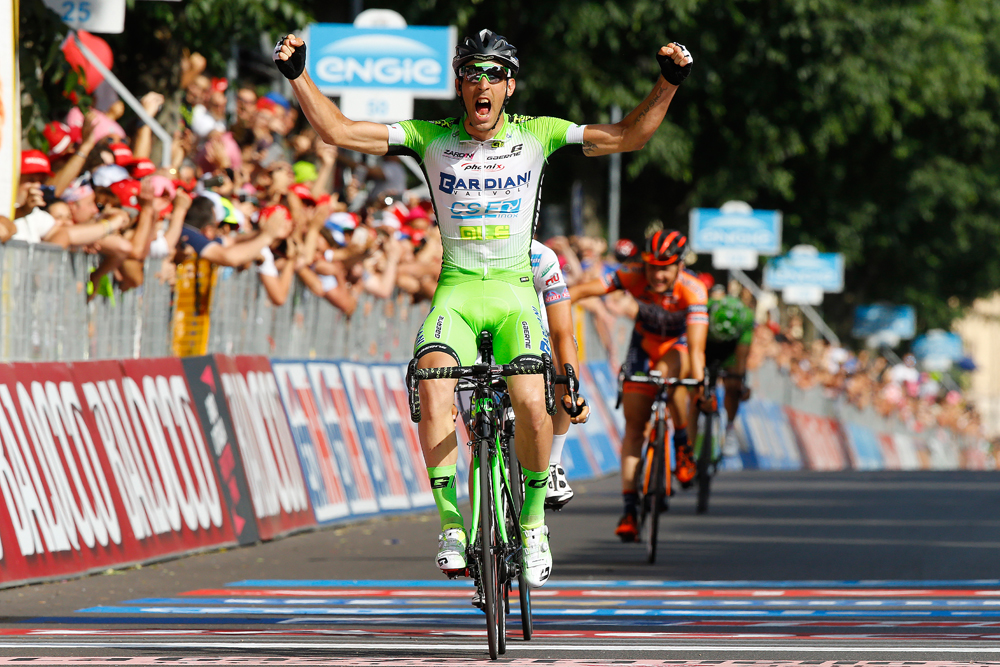
Every team comes into every race with their own ambitions. Such is the nature of sport, however, not everyone can achieve all they set out to. In the first of a two-part feature, Cyclingnews analyses the performance of nine teams at the Giro d'Italia, looking at whether they hit, surpassed or fell short of their pre-race ambitions.
Pre-race expectations: Tinkoff-Saxo had one goal and one goal only: to win the Giro d’Italia with Alberto Contador. It was the first step in his tilt at the Giro-Tour double and the hope was to claim the maglia rosa in the most efficient way possible so as to conserve resources for July.
Verdict: Job done. Contador produced a display of individual brilliance to win by a commanding advantage, overcoming such adversities as dislocating his shoulder on stage 6 and being attacked when he punctured on stage 16. He had to dig deeper into his resources than he may have liked – and did struggle to some extent in the mountains on the penultimate day – but winning a Grand Tour shouldn’t come easily. He put Astana in their place and they can only hope they’ve done enough to soften him up for Vincenzo Nibali when the Tour de France rolls around in July.
However, for all the Spaniard’s individual brilliance, there were question marks over the team’s collective performance. Astana put them under intense pressure time and time again, forcing a high pace and igniting the race at every opportunity. After an opening few days in which the Tinkoff domestiques spent a bizarre amount of time on the front, Contador was regularly isolated by the boys in sky blue. Yes, he had more than enough to deal with them, but the fact that Astana’s second-string were able to shred his men might be cause for some concern. (PF)
Pre-race expectations: After Fabio Aru announced himself with an eye-catching third place overall in the Giro last year, the Kazakh team came with the aim of helping him win it this time. Expectations were tempered by the Sardinian’s pre-race troubles, which saw him fall ill with dysentery, lose weight, and miss both the Giro del Trentino and the Tour de Romandie.
Get The Leadout Newsletter
The latest race content, interviews, features, reviews and expert buying guides, direct to your inbox!
Verdict: Astana reached Milan with five stage wins, second and third place overall, the teams’ classification and the white jersey of best young rider. It’s difficult to grumble about that set of achievements, yet the mood in the Astana camp may not have been entirely celebratory.
First of all, they did not win the race, despite clearly showing themselves to be the strongest team. They dominated proceedings with numbers everywhere and an overtly aggressive approach to racing. Alberto Contador was diligently protected by his own team in the opening stages but was regularly isolated as the race went on. Astana will be disappointed that he was able to win by such a comfortable margin despite their superior collective strength.
Also, they ended up with a headache over team leadership, with Mikel Landa appearing to be stronger than Aru. The Basque rider moved into second on GC after stage 16 when he left Aru behind on the Mortirolo to follow Contador. Yet the team's management dithered over which rider to back and Landa had to set aside his own ambitions to allow a resurgent Aru back-to-back wins on stages 19 and 20. The latter seemed to be imbued with particular tension as Landa put in a searing attack on the Colle delle Finistre before being told to wait on the descent to tee Aru up for victory at Sestriere. It smacked of Chris Froome and Bradley Wiggins on La Toussuire at the 2012 Tour de France and Landa was reportedly in tears after crossing the line. (PF)
Pre-race expectations: Ag2r-La Mondiale were aiming for a top-five overall position with Domenico Pozzovivo as the Italian climber had shown his pre-race form by taking a stage win at the Giro del Trentino to validate his early-season stage race results. Sixth overall at the Tour Down Under, eighth at Tirreno-Adriatico and third place, plus a stage, at Volta Ciclista a Catalunya all pointed to Pozzovivo as an outside favourite for the Giro. The team was backing Pozzovivo 100 per cent with Carlos Betancur a ‘wildcard’ entrant.
Verdict: Ag2r-La Mondiale’s Giro looked to have come crashing down on an innocuous descent on stage 3 of the race when Pozzovivo suffered a nasty crash. Initially looking far worse than the reality, a limp Pozzovivo had hearts in mouths until paramedics arrived and movement was detected. With their leader out of the race, Ag2r found themselves with their backs against the wall. The prodigious talent of Betancur was thrust into the headlights as the now de facto GC option and the Colombian responded with aplomb. Betancur became a regular feature in the breakaway as he slowly improved upon his GC position and notched his first top-10 results of the race.
By the time the race finished in Milan, Betancur was in 20th place overall, his best Grand Tour result since fifth at the same race three years ago, and the most active and present rider for the team. Patrick Gretsch’s fourth place in the time trial and Hubert Dupont’s late showing on the road to Madonna di Campiglio were remainders that Ag2r had fielded a nine-rider team.
Ultimately, Ag2r-La Mondiale will look back at the Giro and wonder what might have been and count their blessings for Betancur salvaging the race. (ZW)
Pre-race expectations: Trek Factory Racing went into this year’s Giro d’Italia with a stated objective to go after stage wins, and who better to support than one of the most promising sprinters in the business, Giacomo Nizzolo. The 26-year-old finished second on five previous occasions in bunch sprints at the Italian Grand Tour (one in 2013 and four in the 2014), and this year he had big plans to finally get a win. The team also had hopes for Fabio Felline to claim a stage because he had a strong start to the season with wins at the Criterium International and Pais Vasco, and he looked to be a promising contender for the tougher sprint stages.
Verdict: Unfortunately, Nizzolo’s tally of near misses at the Giro d’Italia has now jumped up to seven, with second places in stage 13 at Lido di Jesolo and stage 17 at Lugano. And although a nice finish, another second place from Felline on stage 3 in Sestri Levante may have only served to add to the team's second-place woes. Nizzolo’s consistency in finishing within the top six during the bunch kicks, however, brought him enough points to win the maglia rossa, which was a fantastic result with in itself, and one that his director Adriano Baffi said he was extremely proud of. But the team still failed to capture the elusive stage win that they had so desperately wanted at this Giro d'Italia. Ahead of the stage 21 finale, Nizzolo even went as far as to state that he would trade the red jersey for the stage win in Milan.
Trek Factory Racing will have to go back to the drawing board and figure out a way to break Nizzolo’s so-called ‘curse of the second place’ before the 2016 Giro d’Italia. (KF)
Pre-race expectations: Given the Dutch team hadn’t won a single race in 2015 before May, expectations wouldn’t exactly have been sky-high. Moreno Hofland brought in their maiden victory at the Tour de Yorkshire and was their best hope of stage victories in the sprints.
The team also had general classification hopes in the form of 27-year-old Steven Kruijswijk, who was 15th in the Tour de France last year. While he was never likely to win the race, a top-10 along with a stage would have been the desired outcome.
Verdict: Things didn’t get off to the best start when George Bennett was forced to pull out on the eve of the race, his cortisol levels below those allowed by MPCC teams.
Moreno Hofland suffered disappointment on stage 2 when he was bearing down on the line but was pipped at the last second by Sky’s Elia Viviani. On a rare straightforward flat day, it was a chance missed and he beat the air in frustration. The best he would achieve from then on was seventh on stage 13.
The ray of positive in the team’s Giro was Kruijswijk, who rode to seventh overall and third in the mountains classification. After a difficult opening week in which he dropped out of the top 20, he came back brilliantly with dogged displays and two second places in the mountains. One of those came on stage 9 when he was beaten only by Paolo Tiralongo (Astana) after spending the previous day in a long breakaway. “At that moment, it felt like a victory and maybe that was the best moment of the whole Giro,” said directeur sportif Frans Maassen. (PF)
Pre-race expectations: IAM Cycling’s debut Giro d’Italia was to be based around the general classification aspirations of 25-year-old Sébastien Reichenbach with Sylvain Chavanel, Heinrich Haussler and Matteo Pelucchi free to hunt stage wins. Learning and experience was the team line ahead of the race although a stage win would have been a stated objective behind closed doors.
Verdict: IAM Cycling arrived in Milan with just five riders having seen both Reichenbach and Pelucchi withdraw from the race. Sixth place on the team time trial was an early highlight, as was Chavanel’s second place on stage 5 to Abetone, which would be the closest the team would get to a stage win. The ‘fixie’ crash on stage 2 was a set back for both Haussler and Pelucchi as Reichenbach leant an important lesson on co-operation in the breakaway on stage 8. Roger Kluge’s third place in Milan was a nice finish to the race as IAM Cycling deserve points for giving it a crack across the three weeks.
Non-racing issues, talk of a merger with BMC and Stef Clement’s missed drug test, helped to the team get extra press but IAM Cycling’s Giro was around par. Clément Chevrier finished his first Grand Tour in 69th place, suggesting he is a rider who can cope with the demands of a three-week race, reflecting the team’s pre-race objective of gaining experience and learning. (ZW)
Pre-race expectations: FDJ entered the Giro d’Italia with their hopes pinned on a high overall result from Alexandre Geniez and stage wins from diminutive climber Kenny Elissonde and Anthony Roux. Kévin Reza was to be a sprint option but the team was going to struggle to match the three stage wins and points classification victory by Nacer Bouhanni last year.
Verdict: FDJ will be grateful that Geniez turned up in Italy ready to race after an otherwise anonymous showing from his teammates. Elissonde was briefly spotted infiltrating breakaways but ended the race empty handed as the 52kg climbing frame of Elissonde was three position lower than teammate and eight-time French cyclo-cross champion Francis Mourey. Murilo Antonio Fischer’s tribute to compatriot Ayrton Senna at the Imola racetrack was a rare sighting of the Brazilian.
Pre-race expectations: Southeast’s Giro d’Italia was largely about one man, Alessandro Petacchi, and his final appearance at the race. The 41-year-old was unlikely to add to his tally of 22 Giro stage wins in 2015 with top-10 results for the wildcard entry team a realistic expectation. Manuel Belletti was the form rider for the team ahead of the Giro and possible avenue to stage wins if all the pieces were to fall into line.
Verdict: While Southeast tried their luck in the breakaways, 2015 wasn’t to be a race for the wildcard teams, Nicola Boem (Bardiani-CSF) the exception. In the sprints, two fourth places to Belletti plus a fourth and fifth for Petacchi marked a good opening week of the Giro but nothing spectacular.
Southeast’s best performer across the three weeks, both Belletti and Petacchi would record DNF’s before Milan, was 2011 Tour de Langkawi winner Yonathan Monsalve. The 25-year-old Venezuelan rode himself to 30th place overall having also recorded the best result of the race for Southeast, third on stage 4. In his second Grand Tour, Monsalve improved 36 places on his debut performance and with his contract up this season, he should have some offers coming his way.
Pre-race expectations: Lampre-Merida sent a mixed team of nine riders to the Giro d’Italia with two who were making their debut to the Italian Grand Tour; Gang Xu and Tsgabu Grmay, along with seven others who had 24 Giro d’Italia starts between them; Roberto Ferrari, Sacha Modolo, Manuele Mori, Przemyslaw Niemiec, Jan Polanc, Maximiliano Richeze and Diego Ulissi. The team expressed their intent to put weight behind Modolo for the sprint stages and Ulissi, Polanc and Niemiec for the breakaway opportunities and the mountain stages.
Verdict: The stars aligned for the WorldTour team with a total of four stage wins. Polanc delivered the team’s first win from a solo breakaway during stage 5 in Abetone. Ulissi continued with the stage 7 win in Fiuggi from a sprint, in what was his first win since serving a nine-month ban for asthma drug Salbutamol. Modolo capped off the team’s already successful Grand Tour with double stage wins during bunch sprints on stage 13 to Lido di Jesolo and stage 17 in Lugano.
Modolo proved his consistency in the sprints by finishing third in the overall point’s classification behind Giacomo Nizzolo (Trek Factory Racing) and Philippe Gilbert (BMC). The team also finished third in the overall team points competition behind Astana and BMC. Although Niemiec was intended to be a general classification option for the team, he only managed to finish 40th overall at 2:39:20 behind overall winner Alberto Contador (Tinkoff-Saxo), showing that they need to improve in that department. All-In-all the team’s eight top-10 stage finishes, which includes four wins, can be classed as a successful Giro d’Italia. (KF)
Cyclingnews' Giro d'Italia team by team review: Part 2 to follow...